A panel of aircraft interior experts judged more than 100 entries from 22 countries with the aim of awarding new ideas that could be implemented very soon on an aeroplane. The panel consisting of Sir Tim Clark, president of Emirates, Juha Jarvinen, EVP Commercial at Virgin Atlantic, Toni Garrn, co-founder of JetLite and Joe Leader, CEO of APEX, was a member of the judging panel.
The judging process began in December 2018 when the 27 members of the international expert jury evaluated some 94 shortlisted entries. That initial round of voting created 24 finalists in eight categories, with the final round of evaluation resulting in eight winners.
- Air Sial to add Airbus A320s into its fleet, adds flights to Riyadh
- Indigo flight from Jeddah diverted to Karachi after a medical emergency, a passenger was found dead upon checkup
- Caretaker Government of Pakistan plans to “gradually shut down” Pakistan International Airlines
- Zara Airways: The story of an airline on paper that dreams of starting flights from Canada to Pakistan
- Ethiopian Airlines resumes flights to Karachi after 19 years

Image: Kristina Velan
Cabin Concepts
The first award for this most important category went to Airbus S.A.S with cooperation partner Safran for their concept of Lower Deck Pax Experience Modules.
The main crux of the concept is to provide a quiet, dark and unused space for passengers where travellers can go to sleep. It’d be up to the airline to decide how they’d sell such a concept to passengers.
Other two finalists were
* Emirates First Class Fully Enclosed Suites – Emirates (cooperation partners The Boeing Company.
* Collins Aerospace, Jacques Pierrejean Design Studio, Mercedes Benz, Panasonic, Teague
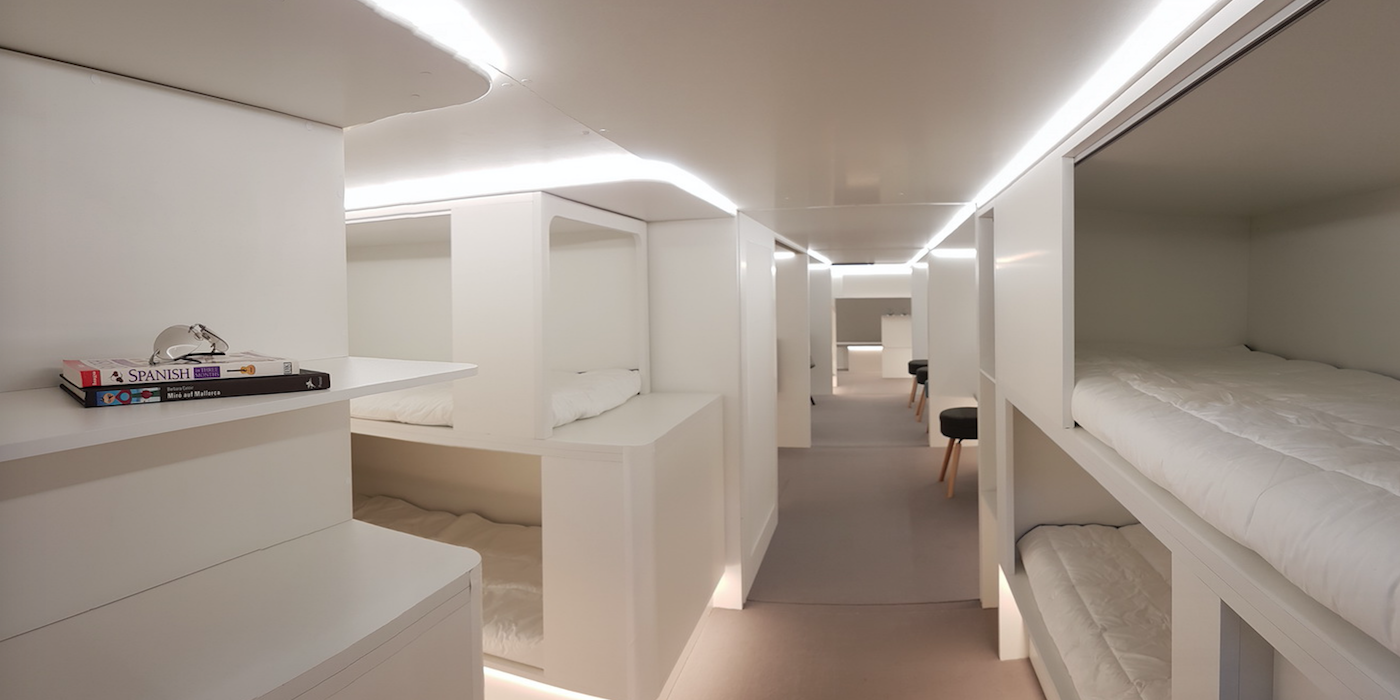
Cabin Systems
Collins Aerospace won the prize with its M-Flex Duet kiosk that exploits unused space for passenger service.
Many premium self-serve areas require seats to be removed to accommodate the differentiated service monuments, and that loss of seats can cost airlines six figures in lost revenue every year. However, the M-Flex Duet monument can be fitted without any loss of seat count. During taxi, take-off and landing the monuments are stowed and their compact design helps ensure they meet all regulatory aircraft egress requirements. Once the plane is cruising, the crew can unfold the units (similar to opening a closet door), stretching them across the doorway to create a stand-up branded self-serve social area, an additional crew working space or even a retail area to help generate ancillary revenue.
Other two finalists were
* X-Tend Seat – the new Over Wing Exit Seat – Airbus Operations GmbH
* Flexible Passenger Service Unit System – Diehl Aerospace GmbH
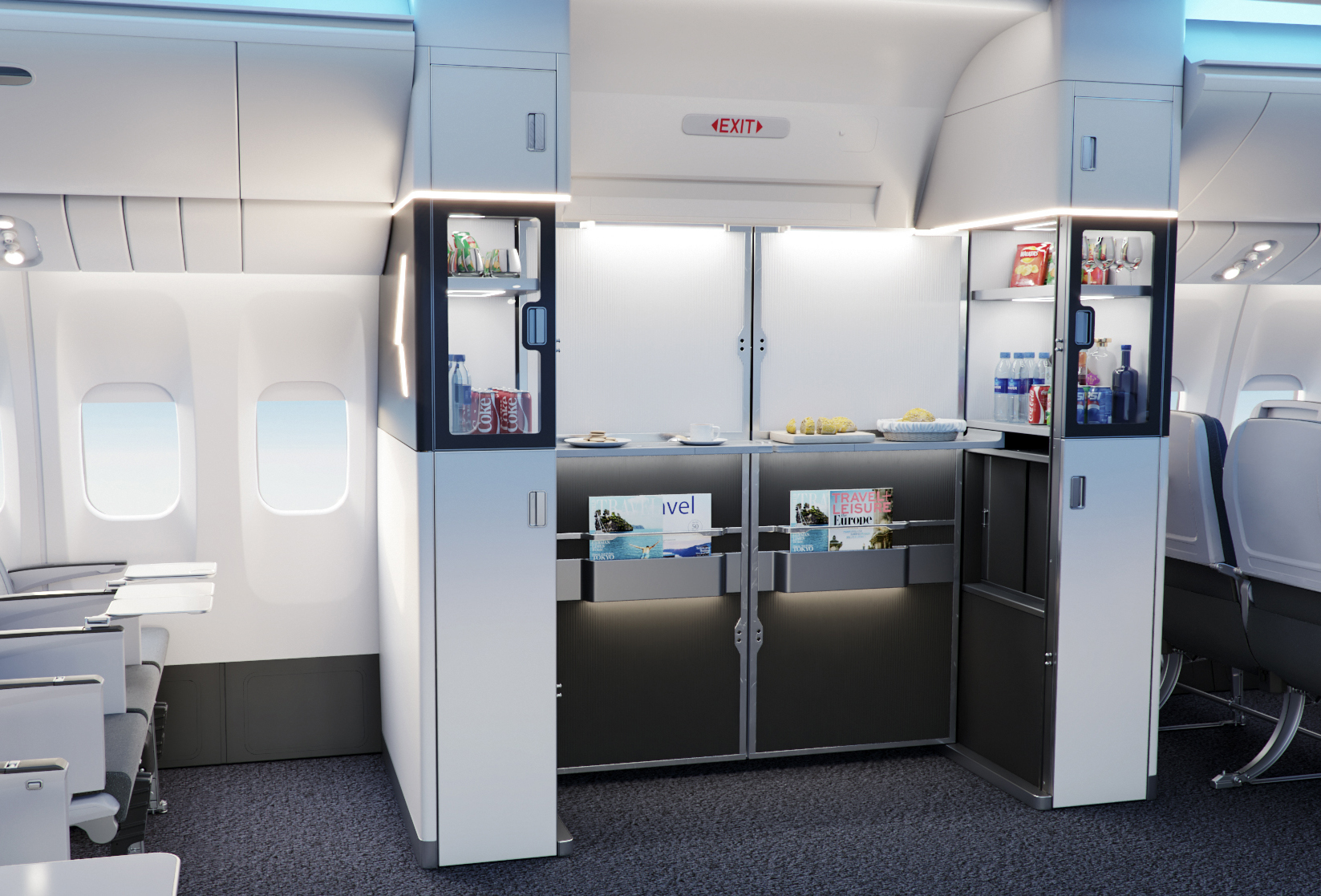
Greener Cabin, Health, Safety and Environment
Air New Zealand SkyCouch Infant & Child Improvements – Air New Zealand.
This amazing product named Skycouch from Air New Zealand is very popular after the airline launched it. The original seat won the Passenger Comfort category of the 2011 Crystal Cabin Awards. It broke new ground in creating a genuine luxury upgrade for economy class passengers, with a row of seats able to be converted into a bed on demand (for an additional fee, if space permitted). And this year the latest development is that Skycouch is available as a family space, with new belts and features ensuring that even babies and infants can be safely put to bed in the space.
Other two finalists were
* UV LED Water Disinfection Unit – Diehl Aviation Gilching GmbH
*
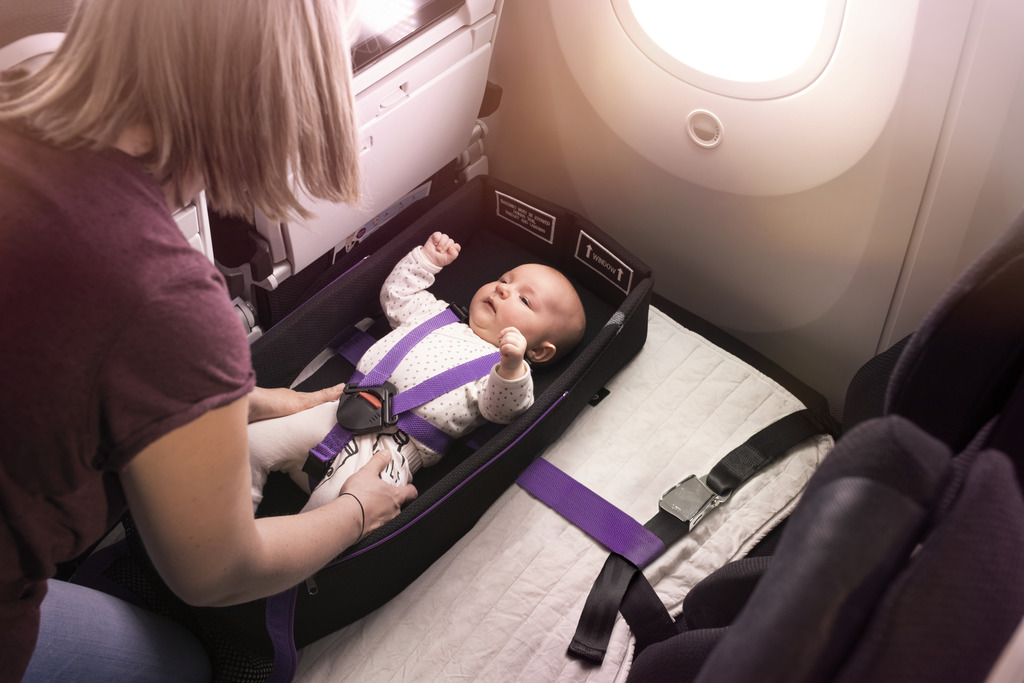
IFEC
Entertainment for all – United Airlines (cooperation partner Panasonic Avionics)
United Airlines has introduced the world’s most extensive suite of IFE accessibility features, providing entertainment for passengers with any level of visual acuity, as well as hearing and mobility-challenged people.
Other two finalists were
* Virtual Windows – Collins Aerospace
* Pioneering LEO Satellite Broadband – Global Eagle (cooperation partner Telesat, Gilat,

Material and Components
Collins Aerospace was the shining star in this category with the μLED reading light.
These lights replace existing cabin reading lamps with a dense array of LEDs that work as a variable geometry light source that is then projected to create any shape or form.
Other two finalists were
* Flexible door – Safran
* KYDEX Lumina – SEKISUI Polymer Innovations, LLC
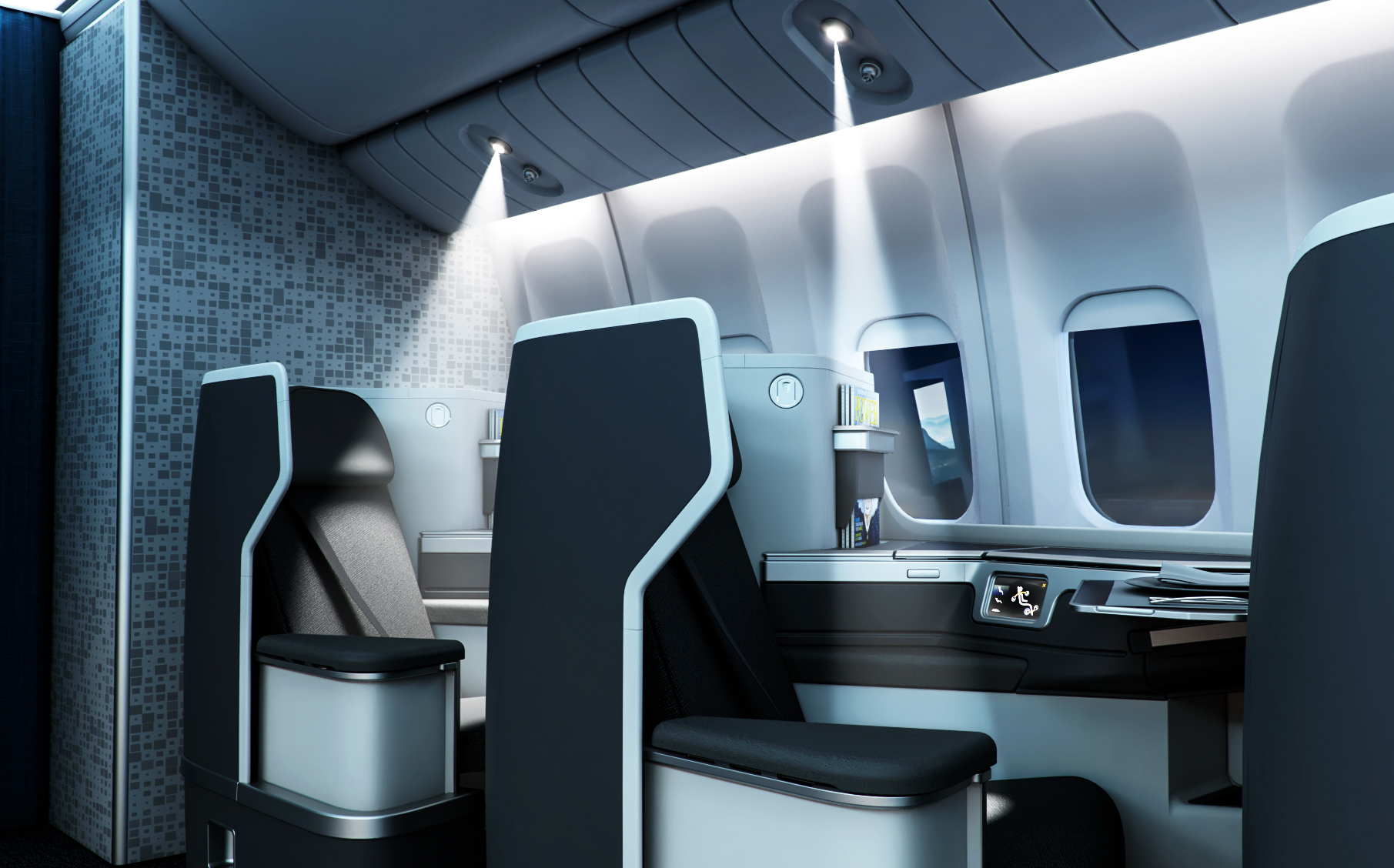
Passenger Comfort Hardware
Sleeping comfort above the clouds – RECARO Aircraft Seating
Aircraft seating manufacturer, Recaro won this award by creating a long-haul seat for economy class making it more comfortable. This winning design is based on three comfort elements that enable better body posture, ease of changing sleeping positions, and a reduction of pressure points. The Abrazo headrest, gives additional side support to the head, while the upper legs and parts of the lower legs can be supported by the Extended Seat Bottom option, which increases the size of the seating surface and reduces pressure points, while the Flip Cushion helps to support the lower lumbar area in a cradle or sleeping position.
Other two finalists were
* Flexible door – Safran
* Moments by STYLE&DESIGN – Style&Design
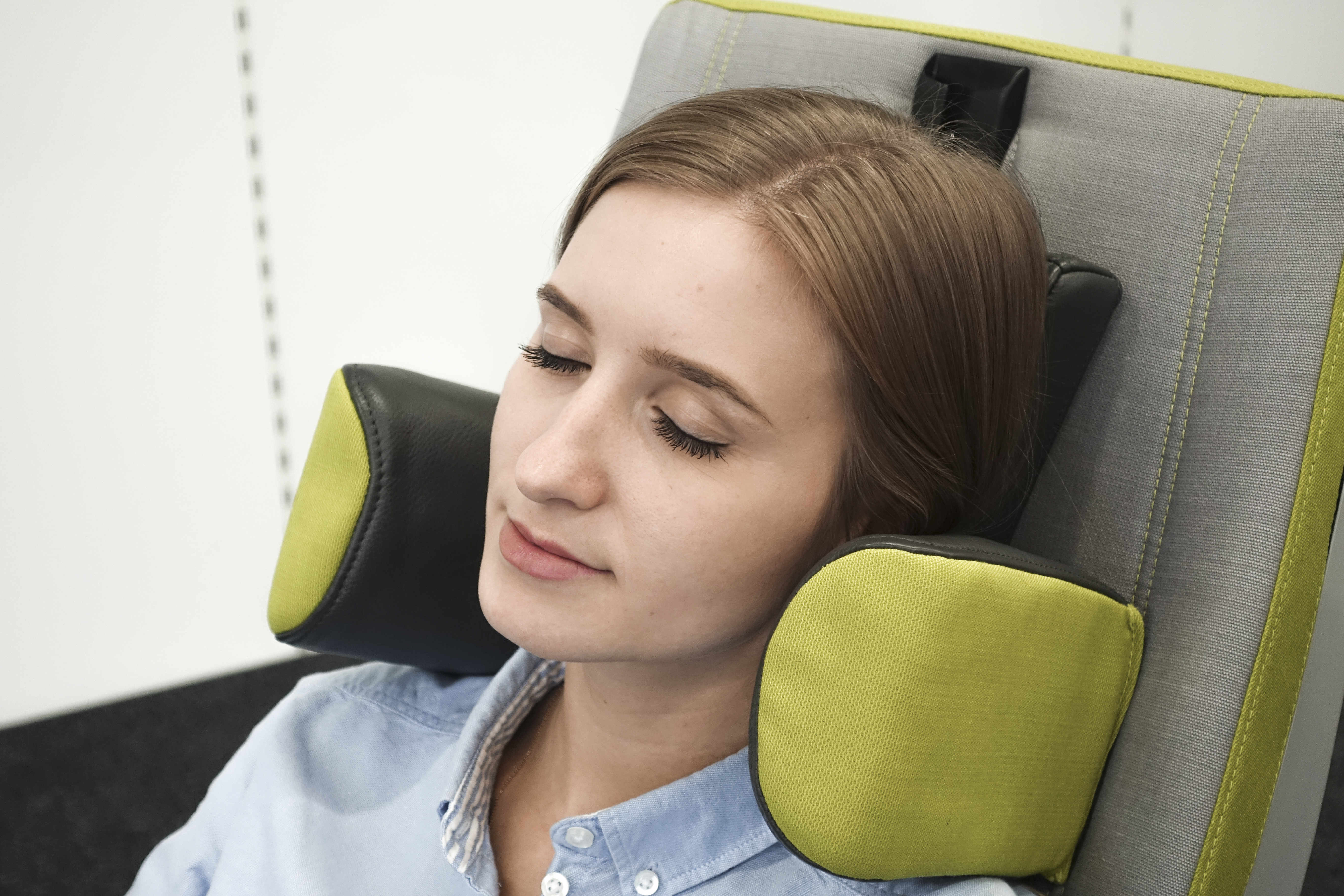
Visionary Concepts
Peacock Suites – Paperclip Design Limited
The winning design by Paperclip Design, a hong kong based innovation house. They have already won an award in 2014 for the Butterfly convertible seating concept, an award in 2009 for the Paperclip Armrest concept. This latest suite idea is a way for airlines to quickly reconfigure their first class cabins. Flexible partitions and seating arrangements enable individual products to be put together on a flight-by-flight basis as required, ranging from family compartments to three-room luxury suites. Taking the Etihad first suite to the next level.
Other two finalists were
* ULTRAFLEX by AIM ALTITUDE– AIM ALTITUDE
* Boeing Smart Cabin – The Boeing Company
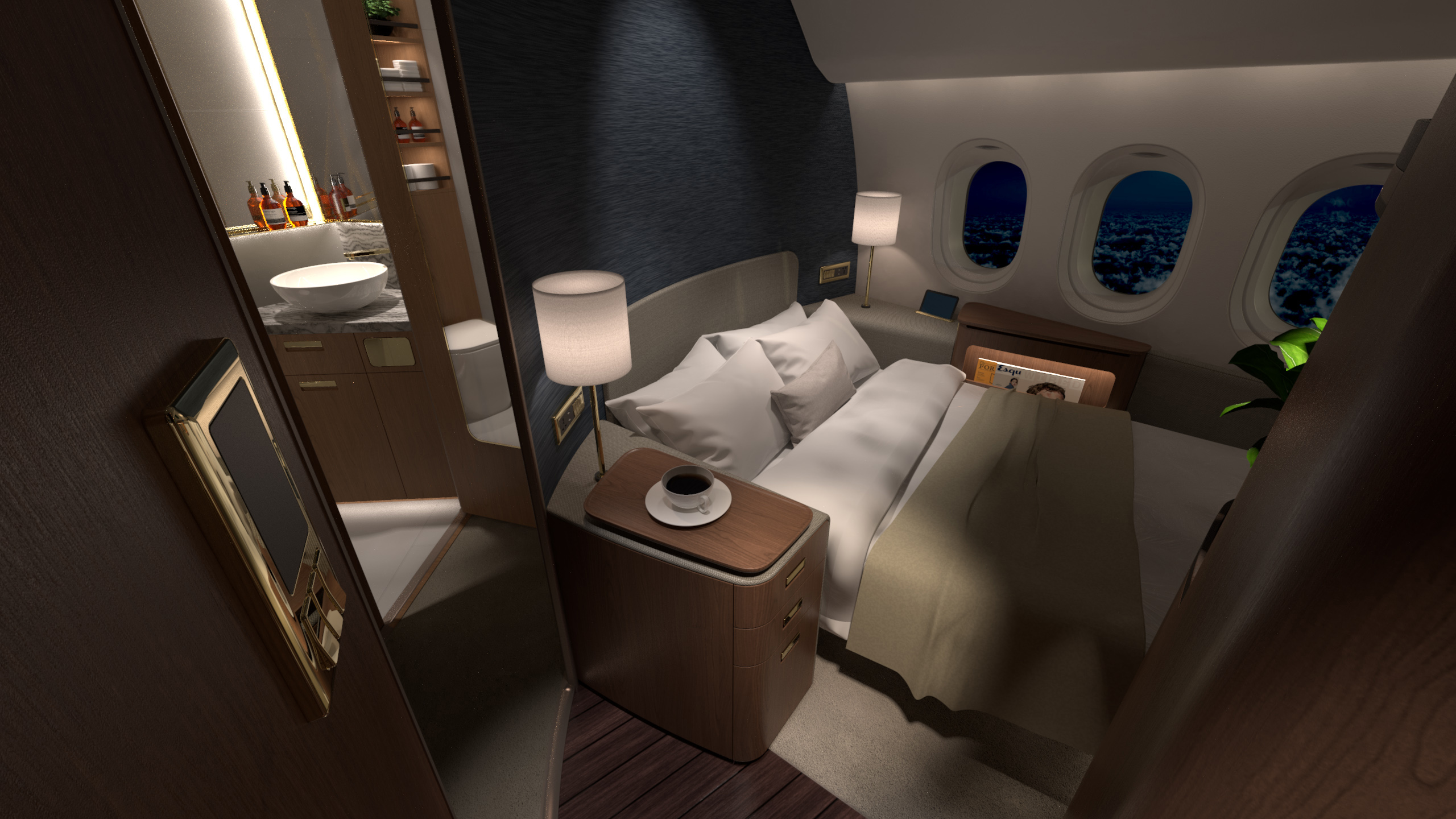
University
Adient 1FA – Hongik University (cooperation partner ADIENT) by
Sahngseok Lee.
This category provides a unique opportunity for college and university students to present their visions for innovative aircraft interior products and concepts. Finalists in this category came from students all over the world.
This year’s winner is Sahngseok Lee from Hongik University in South Korea, who has designed the 1 For All concept in collaboration with seating manufacturer, Adient Aerospace. The cabin concept interweaves the various seat classes to achieve the maximum possible use of space. Premium and economy passengers may find themselves next to one another or even above or below one another — alone or within compartments.
Other two finalists were
* Stratus – TU Delft (cooperation partner Safran)
* SkyDinin – University of Cincinnati (cooperation partners The Boeing Company & Live Well Collaborative)
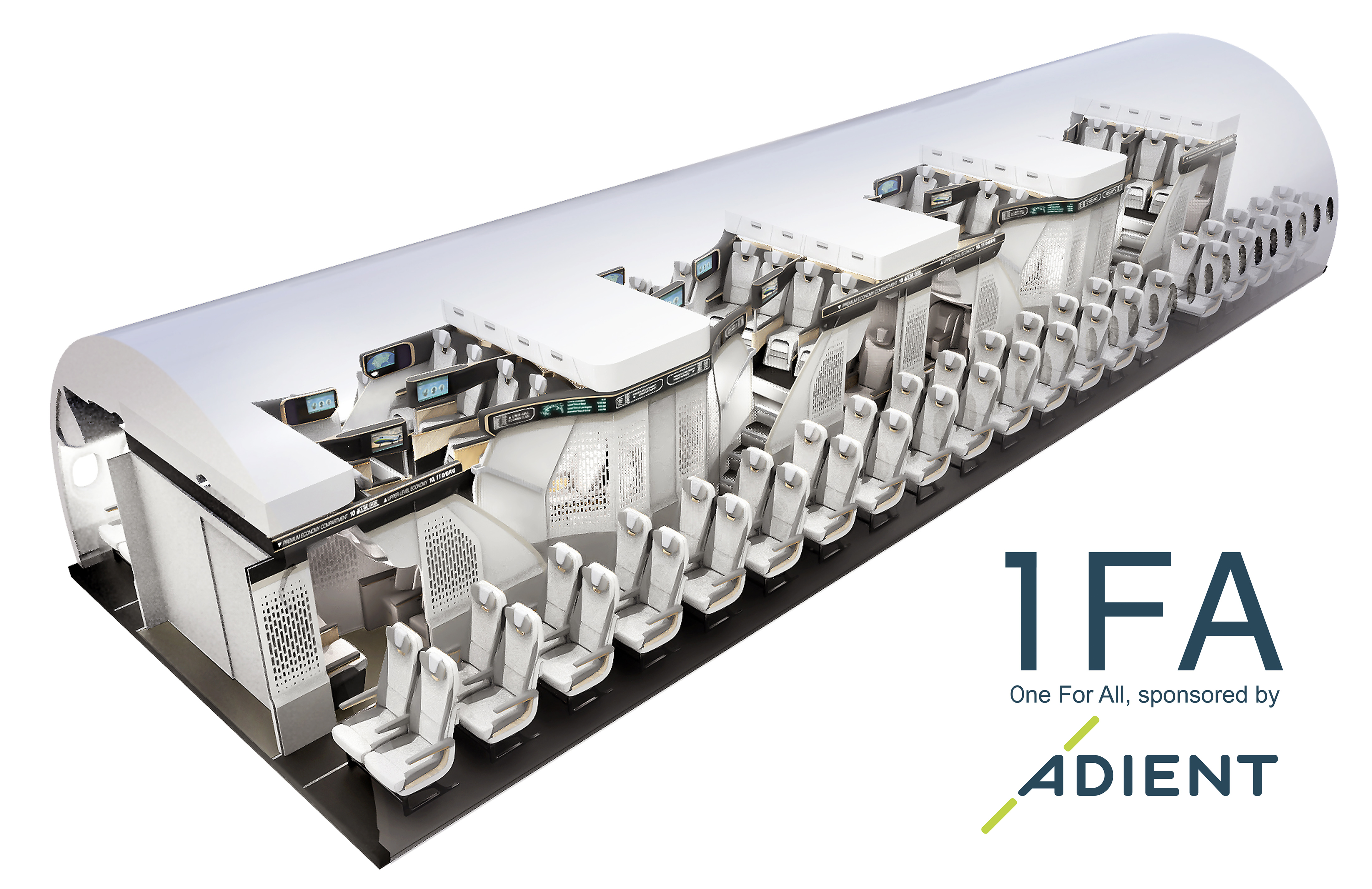



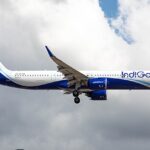


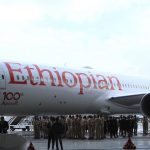
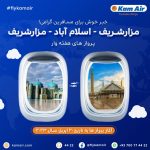
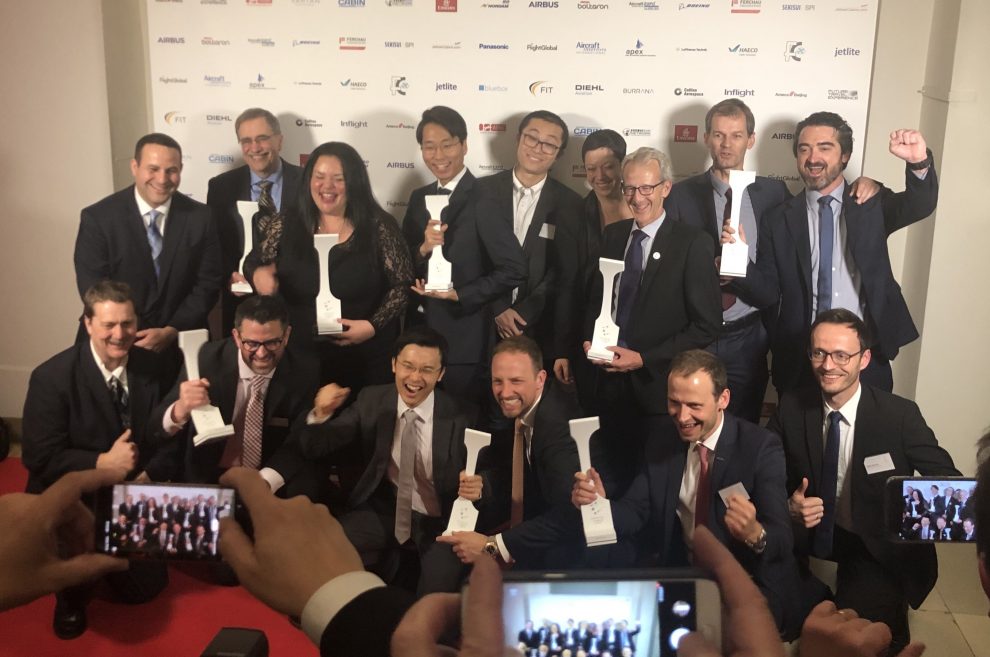
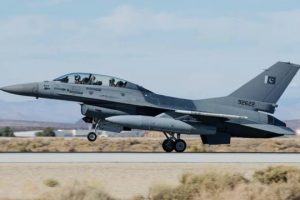

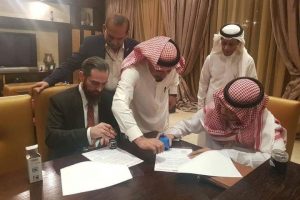




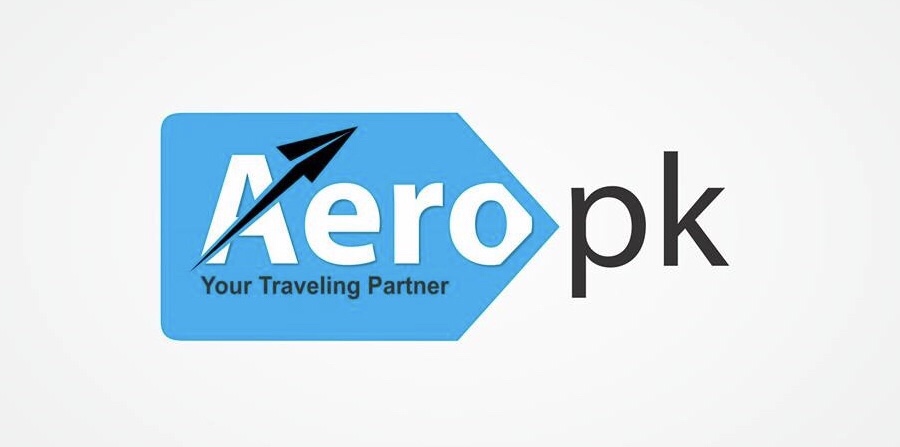

Add Comment